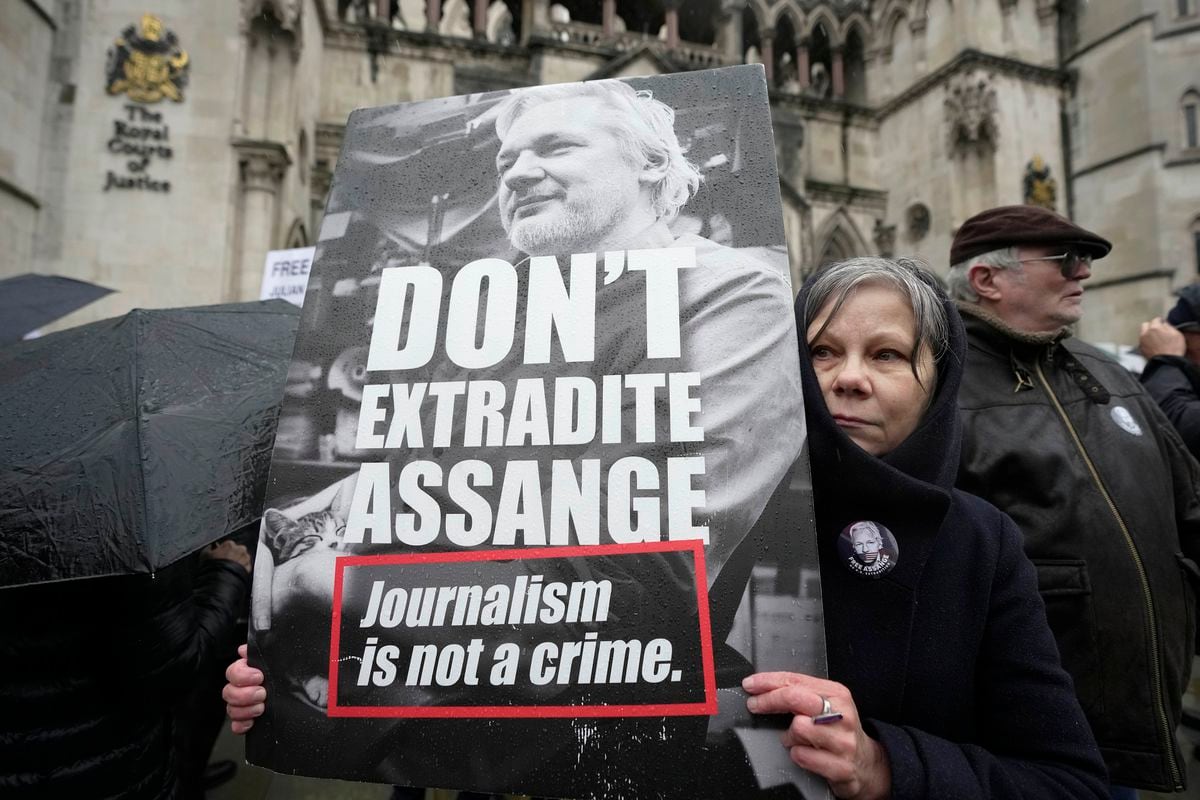Boris Johnson has temporarily turned his eyes away from the coronavirus health crisis to focus once again on the raison d'être of his political career: Brexit.
In a statement prepared to capture the attention of the media late this Sunday, before a crucial week begins in the negotiations between London and Brussels, the prime minister has warned the EU - but above all, the British - that the possibility of a sudden break in economic, commercial and legal ties between the United Kingdom and Europe as of December 31 begins to emerge as the final outcome.
"We need to conclude an agreement with our European friends before the October 15 European Council," says Johnson.
"If not, I don't see the possibility of there being a free trade agreement between us, and we will both have to accept it and move on to something else."
Downing Street and the European Commission agree that this date, October 15, is the deadline.
It is the only way that there is time for the final documents to be finalized, translated into all the official languages of the EU, and can be approved by national parliaments, the European Parliament and the British before the end of the year.
The rest of Johnson's statement could sound like a new ordeal that London has tried to put on the table during three years of negotiations, especially in the last phase.
But on this occasion, all the actors acknowledge that the Johnson government is beginning to show its true cards unambiguously, and that it is no longer hiding its ultimate goal of abandoning its relationship with the EU with the least possible ties.
“We will then have a trade agreement with the EU like the one Australia has.
And I want to be absolutely clear about it, as I have said from the beginning: it will be a good result for the UK ”.
A clear sign of Johnson's willingness to go ahead with this plan has been his signing of former Australian Prime Minister Tony Abbott as his government's trade adviser.
The harsh criticism, not only from the opposition but from many conservative MPs, of Abbott's misogynistic and authoritarian past has not changed Johnson's will to have this new ally.
What Johnson hides in his words is that Australia has no trade agreement with the EU.
It has something called a “mutual recognition agreement”, which is limited to reciprocally accepting a series of quality controls in its exchanges to avoid costly technical and administrative procedures.
Negotiations to reach a proper treaty, which is what Canberra really aspires to, have been stalled for years due to the political and practical difficulties they entail.
Australia must submit to the EU tariffs and quotas that Johnson has consistently promised the British that the UK would not have.
In other words, if necessary, the only rules that would govern relations on both sides of the English Channel would be those of the World Trade Organization.
Brexit became a political reality on January 31, but then a transition period began that put the breakdown of economic, commercial or legal ties on hold.
For all practical purposes, nothing was going to change until December 31, 2020. London and Brussels had practically a year to negotiate a good trade agreement.
The pandemic came quickly, and the talks were frozen for several months, although the Johnson administration made no effort to ask for an extension and simply let the schedule continue to advance.
It was not until mid-June that the British prime minister added his voice to that of the presidents of the three EU institutions (Ursula Von der Leyen, Charles Michel and David Sassoli) and promised to give new impetus to the talks.
It was quickly shown that progress was going to be little, if not nonexistent.
If at first the focus was on reaching a complicated new fishing agreement, and it seemed that this issue was going to be the main stumbling block, it soon became apparent that the real obstacle was another much less manageable issue: aid. state to the national industry.
The EU has always pursued the so-called
level playing field,
which would come to
translate
as a leveling of the rules of the game.
If London wanted free access (without tariffs or quotas) to the European market, it had to commit to making its rules on labor, environmental, consumer protection or public financial promotion of national industry similar to those of the EU, in order to avoid an unfair competitive advantage.
Johnson's argument, throughout this time, has been to ensure that the UK is already as strict, if not more, than Brussels on all these matters, and that the final decision must lie in good faith and trust. mutual.
The trap, Brussels has suspected, was in the fourth point.
If since the era of Margaret Thatcher the United Kingdom has been reluctant to protect its companies with public money (its aid did not reach even half of the average of the rest of the EU countries), the new vision that Johnson and her chief strategist,. Dominic Cummings, have for the United Kingdom going through a huge public investment in the new technological revolution.
And they refuse to have their hands tied with Brussels.
“Any economic and commercial relationship - between economies as close and interconnected as ours - must include robust and credible mechanisms to avoid distortions in trade and unfair competitive advantages.
And this is particularly important in the area of state aid, where the potential to provoke competitive distortions with the use of subsidies is very important ”, the main European negotiator, the Frenchman Michel Barnier, made clear in his speech on September 2. at the Institute of European and International Affairs in Dublin.
Johnson definitely does not throw in the towel, at least in his official pronouncement.
He assures that there is a deadline to reach an agreement, and that London will continue working on it during the month of September.
But the facts contradict his words.
As
The Financial Times
has advanced
,
Downing Street is already working on a new law that would reduce the binding legal force of key sections of the Withdrawal Agreement signed with Brussels, especially in relation to Northern Ireland and state aid.
And the prime minister already takes it for granted that, in the months to come, London will be willing to “accommodate sensitive and practical issues such as regulation of commercial flights, trucking, scientific cooperation ... but without a commercial agreement ”.
And the general interpretation agrees that the tone and message from Downing Street this time sounds less like bravado than a consummate decision that the British must begin to digest.
And that, therefore, sounds better in terms of public communication, an “Australian agreement” than a pure and simple Brexit.

/cloudfront-eu-central-1.images.arcpublishing.com/prisa/DGFXGGBPJFHW7DPWLDN3VTOYYI.jpg)
/cloudfront-eu-central-1.images.arcpublishing.com/prisa/RLVRE36BJ333YNEQ2LG6XMIQSY.jpg)


/cloudfront-eu-central-1.images.arcpublishing.com/prisa/K3QCWCHZS3EFRAZAEGFWH3GLIY.jpg)








